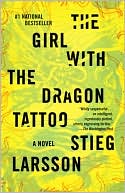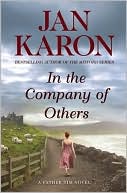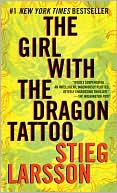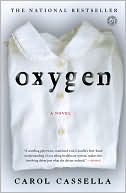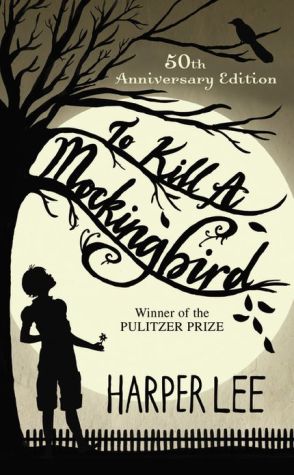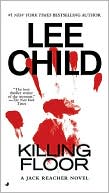Art of Uncontrolled Flight
Annie Shaw was captivated as a child by her father's elusive presence and his love of flying. After tragically losing her mother, Annie follows her father into the Air Force and becomes one of the first women to fly in combat during the Gulf War. But life in the Air Force is not as glamorous as she imagined. Copilot, wife, and lover, Annie struggles to hold her separate lives together until the war itself intervenes. This smart, tightly drawn work, based on the author's life, masterfully...
Search in google:
Annie Shaw was captivated as a child by her father's elusive presence and his love of flying. After tragically losing her mother, Annie follows her father into the Air Force and becomes one of the first women to fly in combat during the Gulf War. But life in the Air Force is not as glamorous as she imagined. Copilot, wife, and lover, Annie struggles to hold her separate lives together until the war itself intervenes. This smart, tightly drawn work, based on the author's life, masterfully illustrates the great pleasures and tragedy that result from war.The New York Times Book Review - Chelsea CainPonders was one of the first women to fly in a war zone, and her personal experience yields detail that adds to her book's credibility.
The Art of Uncontrolled Flight\ A Novel \ \ By Kim Ponders \ HarperCollins Publishers, Inc.\ Copyright © 2005 Kim Ponders\ All right reserved.\ ISBN: 0060786086 \ \ \ \ Chapter One\ \ In 1972, My father flew cargo planes out of Thailand as part of the operation to withdraw American troops and equipment from Vietnam. He often surprised my mother and me, returning a day or two early, and my mother would stick her sewing needle in the little battle-weary pincushion or drop the laundry basket at her feet and run to the back door as soon as she heard his boots on the stairs. Sometimes he vanished just as suddenly, leaving my mother to pick up the wrinkled laundry or finish hemming my dresses, and leaving me on the back steps with my little bag of survival gear: a compass, a chart, and a mirror. In the evenings, after the Bratsons' backyard next door had gone gray and buggy, and we could no longer see the kickball when Jeffery or Timmy sailed it over the fence, and the windows in the houses along our street grew warm with light, and the air became incensed with grilling hamburger and chicken, I sat on the back porch, watching the leaves rustling in the sudden breeze, fading contemptuously into darkness, and waited for my father to return.\ We lived in the Saugausset Highlands in eastern Massachusetts -- a suburb with a town common and a tiny red schoolhouse open for tours on the Fourth of July, and a cluster of colonials on narrow, frostbitten roads that led into sloping hills of two-story homes with dark paneled kitchens and big driveways for our bicycles and hockey sticks. Our own driveway was lined with mums and forsythia bushes and all sorts of lilacs that were the envy of the gardening club my mother had culled from the PTA. When my father was between rotations, she hosted dinner parties for the officers of his squadron and their wives, perhaps attempting to generate the relief and euphoria that she felt they had earned. Those evenings brought a mixture of agony and excitement, and I pulled at my mother's hips as though it might bring my father home sooner, might bring the guests and the giddiness. They never brought their children. I was allowed the run and tumble of the party, where it seemed that at the pinnacle of every chattering group, red-faced from drinking and laughing, stood my father.\ "The party's an hour away," my mother said on one particular night, trying to cast me off with a glance but softening at the sight of my forehead pressed against the back screen door. "Here. Let me be." She gave me a boiled egg and some tea in her quick one-handed motion, while she seemed to do ten things with the other. She was always short with me at the crucial stages of dinner making. I assumed it was because of the timing of sauces and meats and won-tons frying on the stove. The screen door rolled off my elbow as I turned, balancing the egg and cup. She argued with herself while she cooked, as if negotiating something between the two halves of herself, the one that wanted my father home and the one that didn't. To me, it was a personal language, no more decipherable than the skitters of crickets and the Morse code of the lightning bugs. It began along with the other forest voices at about dusk, while there was still just the two of us at home. I never gave it a thought. All she ever saw from me was impatience; I saved my prettiest smiles for him.\ I sat on the top step with my shoulder on the post where a hairline crack had grown every year in the three we'd lived there. It had grown faster than me, splitting the post up the middle, revealing a dark crevasse thick with spider-webs. I peeled my egg and listened to the rising ruckus of the forest and the bugs flying in the electric lamp. As I was thinking of how the long grass near the woods must feel cool at night and be a whole different place than in the afternoons, the furious rumble of an unfamiliar engine pricked my ears, blistering the peaceful air, rolling over the stillness that had been the street. Two white eyes turned into the driveway, tight and low to the ground, with such authority that it could only be my father, home with some strange new animal of a car. Bits of eggshell scattered across my feet as I stood, only half believing the shape in the driveway that gave one final, resolute hum and went silent.\ He rose from the driver's side, resting his hand where the top of the windscreen touched the open air.\ I ran barefoot down the wooden steps to the cement walkway by the side of the house and leapt over a dwarf lilac onto the grass, and with two steps on the sand and pebbles of the unswept driveway, I was in his arms. He smelled of cigarettes and hard things, lifting me over his head so that he could smile up at me, the deep wrinkles set like scars around his eyes. Then I was swooping down, grounded so quickly that I felt dizzy, gripping the door of the Alfa Romeo, while my father stood, wide and magnanimous, blocking the street and the forsythia bush and everything that wasn't him, wasn't here and now and fresh.\ "Take me for a ride!"\ Heat rose off the hood. The car was sleek and smooth, valentine red, and the black canvas roof was tucked down behind the seats. I thought it was a gift for me. He was grinning in triumph, maneuvering my bony shoulders in the enormous girth of his hands, when his gaze lifted and his expression, without changing at all, seemed to turn cold with concern or even fear. He patted my shoulders roughly, saying, "Okay, Annie. Enough."\ "Tell me," my mother said, poised in a prim, pleated skirt in the middle of the driveway, a towel twisted fiercely in her hands, "tell me the Oldsmobile broke down again and this car is a loaner."\ \ Continues...\ \ \ \ Excerpted from The Art of Uncontrolled Flight by Kim Ponders Copyright © 2005 by Kim Ponders.\ Excerpted by permission.\ All rights reserved. No part of this excerpt may be reproduced or reprinted without permission in writing from the publisher.\ Excerpts are provided by Dial-A-Book Inc. solely for the personal use of visitors to this web site. \ \
\ Los Angeles Times“Harrowing. . . Catch-22 worthy rogues.”\ \ \ \ \ New York Post“Real romance … Ponders knows of what she writes.”\ \ \ New York Times Book Review“Wry, hardheaded sensibility…”\ \ \ \ \ Washington Post“Powerful . . . beautifully done, haunting and sad. . . . Ponders is . . . a talented writer.”\ \ \ \ \ Washington Post“Powerful . . . beautifully done, haunting and sad. . . . Ponders is . . . a talented writer.”\ \ \ \ \ Los Angeles Times“Harrowing. . . Catch-22 worthy rogues.”\ \ \ \ \ New York Times Book Review“Wry, hardheaded sensibility…”\ \ \ \ \ New York Post“Real romance … Ponders knows of what she writes.”\ \ \ \ \ Chelsea CainPonders was one of the first women to fly in a war zone, and her personal experience yields detail that adds to her book's credibility.\ —The New York Times Book Review\ \ \ \ \ Ron CharlesThe Art of Uncontrolled Flight presents a number of brief, precisely described scenes that are meant to convey an enormous amount of information about Annie's life and emotional development. In the first part of the book, this method works well. The second and third sections, though, make the novel sound as if it's coming to us over a bad cell phone connection…so much falls between the cracks of this impressionistic mosaic that we seem to be reading highlights of a much longer manuscript. That's a shame because these highlights are often powerful.\ —The Washington Post\ \ \ \ \ Publishers WeeklyAnnie Shaw, a U.S. Air Force pilot in the first Gulf War, navigates womanhood in a man's world in this artful if sometimes inert novel from Ponders, who holds the same resume as her protagonist. Raised by her swashbuckling, womanizing Air Force father after her mother dies when Annie is a child, Annie follows in his footsteps to the Academy, where she learns "how not to be like a woman" and makes rank quietly. In a series of linked stories told from shifting points of view, Ponders explores Annie's uneasy relationships with her father; her decent, sexy geologist husband, Dexter; the men of her combat unit; and her aircraft commander, Jago, the man she loves. The call of military and marital duty is stronger than romance for both Jago and Annie. With restrained, elliptical prose, Ponders evokes Annie's guarded, alert personality. Her stories range from tense and erotic, as when Annie-ever "one of the boys"-visits a strip bar with her crew, to more urgent and morally complicated, as when Annie's dangerous failure of judgment in the air wins her a Distinguished Flying Cross instead of a court-martial. This carefully crafted war story and romance marks an ambitious debut. Agent, Bill Goodman. (Sept.) Copyright 2005 Reed Business Information.\ \ \ \ \ Library JournalPonders draws on her own experience as an air force pilot in the first Gulf War to tell the story of Annie Shaw, from little girl in love with flight through her deployment as a wartime pilot. This three-part debut novel begins with vignettes from Annie's childhood: as a youngster entertaining her father's squadron with her rudimentary knowledge of flight and later escaping the fire that would claim her mother's life and as an adolescent interacting with the latest in her father's series of female companions. Part 2 offers flashes of war: Annie's time in the Gulf, her air force lover continuing on to Somalia and Kosovo, and a pregnant Annie reflecting on war on September 12, 2001. Part 3 shows Annie readjusting to civilian life as a decorated "hero" some thought should have been court-martialed. Like her character, Ponders sometimes tries too hard, using a complicated construction when simpler sentences would better serve her cause, but overall this is a well-told story and one not often heard. Recommended for public libraries.-Debbie Bogenschutz, Cincinnati State Technical & Community Coll. Lib., OH Copyright 2005 Reed Business Information.\ \ \ \ \ School Library JournalAdult/High School-As six-year-old Annie helps her mother get ready for a party, her father, a decorated Vietnam pilot-hero both to his country and his daughter-roars up their driveway in a new sports car to take them for a ride. That night, her mother awakens her, and they flee from her philandering father and their Boston-area home. They get as far as Connecticut before Annie's mother, running out of gas and gumption, calls her husband to retrieve them. Annie's identification with her father continues into her adult life. After the breakup of her parents' marriage, she lives with him and various female companions in homes ranging from Texas trailers to society mansions. She enters the Air Force Academy and becomes one of the first female pilots during the 1991 Gulf War. She also is unfaithful to her spouse, and she, too, becomes a hero. As she attends her decoration ceremony, she is disturbed because she had let her plane wander into enemy territory rather than piloting it to safety under hostile fire. Only a press photo and a good-news-starved public-relations machine created a heroic flight out of action that deserved court-martial. Annie discovers that she might resemble her father more than she knew and begins to reevaluate her priorities. Readers will find insight and wisdom in this compelling novel.-Susan H. Woodcock, Fairfax County Public Library, VA Copyright 2005 Reed Business Information.\ \ \ \ \ Kirkus ReviewsAir Force flyer wrestles with her demons during Desert Storm. In carefully cadenced prose, debut novelist Ponders diffidently explores the fallout from only-child Annie Shaw's relationship with the distant, cold father she reveres. He was a pilot and Air Force veteran, and Annie wanted to emulate him even as a child, when she preferred eavesdropping on war stories to passing hors d'oeuvres at her parents' cocktail parties. However, when her father's infidelities seemingly lead to her mother's death, she and ruggedly handsome Dad become transients, living with a succession of his mistresses and wives. The section expounding Annie's childhood is more engrossing than those detailing Annie's experiences as an Air Force Academy cadet and an anomalous female pilot deployed to Saudi Arabia after the invasion of Kuwait. The military scenes suffer from an excess of downtime and acronyms. A mostly extraneous middle section follows the careers of Annie's male comrades as they switch war zones, from Kosovo to Kandahar. There are some gripping moments, including a mission during which Annie inadvertently exposes her crew to a missile attack. The affectless narration jumps around in time and shifts from first- to third-person point of view, but the protagonist's secret self is always held close to her flight vest. A detached reportorial voice, emphasizing physical detail more than psychological depth, glosses over Annie's feelings of guilt after her mother dies in a house fire. Similarly undocumented are the course of her estrangement from her father and the reasons she married thinly sketched Dexter. When the missile mishap results in a medal rather than court martial thanks to the intervention ofex-lover Jago, Annie's feelings about the deception are obscured because the facts are laid out so dispassionately. The narrative lacks thrust, and the flight could be less controlled, but it shows promise of better work to come, once the author stops withholding.\ \

